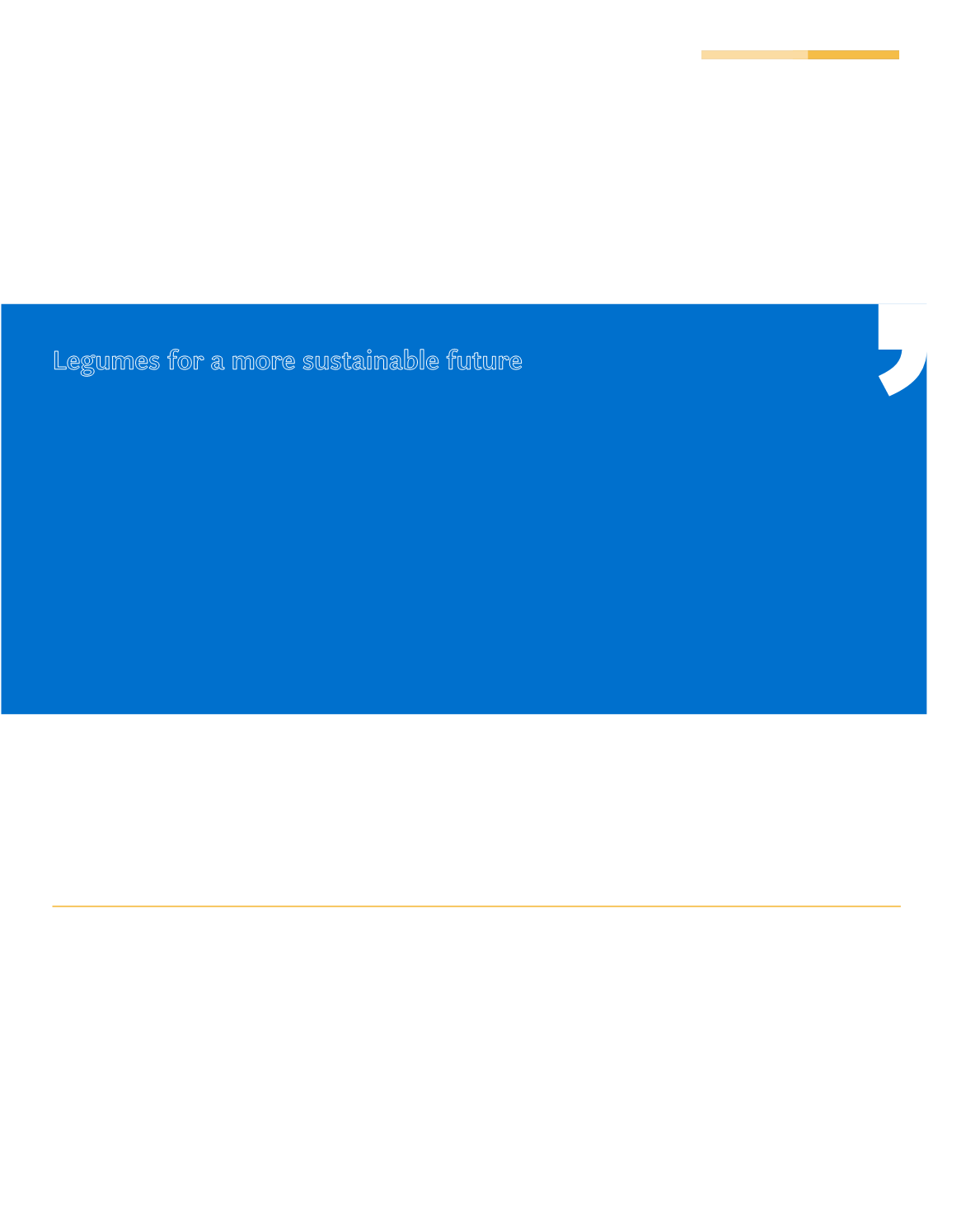

115
TOMORROW
Legumes for a more sustainable future
Traditionally including a limited intake of beef, rich in
bread, cereals, olive oil, fruit, green vegetables and wine
(in moderation) with the subsequent addition of tomatoes,
potatoes and corn from the Americas, the Mediterranean
diet’s most distinctive feature – and the staple that is being
fostered today – are legumes. It is no coincidence that FAO,
which firmly believes in the nutritional benefits of legumes
as part of sustainable food production, declared 2016 the
International Year of Pulses
.
Pulses are a type of nutrient-rich legume (seeds that grow
within pods) available cheaply with 12,000 species that are
cultivated in almost every climate; they provide protein, are
rich in minerals like magnesium, potassium, phosphorus and
iron, and have nitrogen-fixing properties which can contribute
to increasing soil fertility and have a positive impact on the
environment. For this reason, introducing pulses to crop
rotations improves the yield and quality of other crops and
improves the sustainability of cropping systems generally.
The
Slow Food Presidia
project includes over 30 varieties
of these legumes in Italy and worldwide, fostering their
specific history and traditions while – of course – sponsoring
pulse recipes used to make traditional local dishes.
The increased use of different types of legumes (e.g. white
peas, lentils, chickpeas and beans) was one of the aims of the
review of the
food experience
implemented by Costa Cruises
in 2015. Directly linked to this is the introduction on board of
regional menus, which typically make good use of this kind of
ingredient.
Our path to good, healthy
and sustainable nutrition
the culinary offerings on board our
ships and also involves the proactive
participation of the Company in
discussion of food security-related
issues with all the main public
and private stakeholders directly
or indirectly working in the food
production industry.
Aware of how central food and diet
are to people’s lives, Costa Cruises
has put the issue of nutrition and the
food supply chain at the heart of its
sustainable development strategy.
This translates into a clear commitment
to the objectives of accessibility,
sustainability and nutritional value of
















